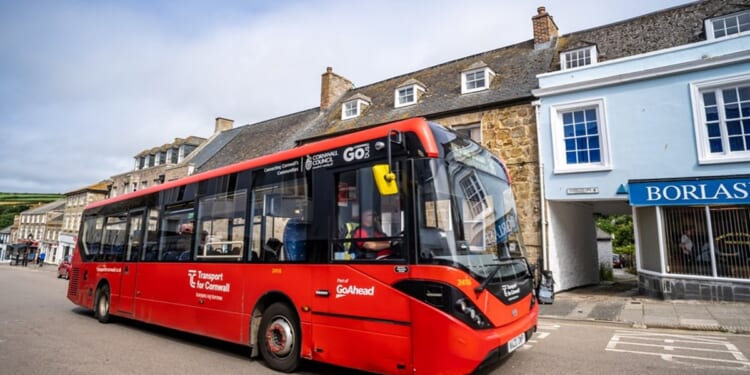RURAL and coastal communities continue to be disadvantaged by the Government’s use of urban-led funding formulas, research primarily funded by the diocese of Truro warns.
The report on social and economic equality, The Pretty Poverty Report: Cornwall rurality matters, was written by researchers at Plymouth Marjon University and published in September. A press release from the diocese on Monday said that several of the recommendations had since been considered in the latest English Indices of Deprivation (IoD) 2025, published by the Government on 30 October.
The MP for Camborne and Redruth, Perran Moon, had raised the findings in Pretty Poverty with the Environment, Food and Rural Affairs Secretary, Steve Reed, and the Transport Secretary, Heidi Alexander, specifically to address transport dependency, which the researchers had found to be the most significant barrier to reducing levels of rural deprivation.
This is one of six critical themes of rural deprivation in Cornwall identified in the report, “car ownership representing essential infrastructure rather than affluence”, it says. Owing to poor transport links, residents face the “rural tax”, defined as “systematic exclusion from employment, healthcare, and social opportunities without private transport”.
They also face “intense competition and intergenerational dependencies not captured by standard housing indicators”: second homes and holiday lets mean that about 20,000 homes are not lived in full-time.
In his foreword, Mr Moon writes: “It all comes back to the housing crisis.” The aim of the research is to look beyond the “postcard-perfect image” of Cornwall to explore a “more complex reality — one where too many local people face daily struggles”.
Other themes include seasonal work patterns and geographic constraints on career development; a lack of local healthcare options; students’ facing long commutes, with a limited choice of school or college, plus poor internet for online learning; and community resilience, which may, the report says, create give policymakers and fudners misleading perceptions that mask underlying deprivation and make it harder to secure investment.
The Indices of Multiple Deprivation (IMD) method — used by successive governments to measure poverty — has failed “to capture the true extent of remote coastal deprivation”, the report says.
Transport represents “the fundamental determinant of rural access to employment, healthcare, education, and social participation”. So one “flaw” of the IMD measurement is that “transport barriers” account for just 9.3 per cent of the weighting in the Barriers to Housing and Services domain. This is compared with an income domain set at 22.5 per cent, and an employment domain set at 22.5 per cent.
Another issue with IMD, the report says, is the use of “urban-centric indicators”. This means that crime statistics, public-transport measures, and service-proximity indicators “systematically undervalue rural challenges”.
In its press release, the diocese of Truro says that, although the new IoD measure of deprivation “was anticipated to have addressed issues of rural deprivation representation”, it “does not act to the extent that the Pretty Poverty report recommends. Data access has triumphed over equity, despite the addition of an IoD 2025 Rural Report acknowledging the inadequacies for representing rural poverty.”
The report explores life in six areas of Cornwall over 18 months: St Blazey West; Bodmin St Marys Ward East; St Day; St Buryan and Sennen; St Dennis South; and Looe North East and St Martin.
The research was led by Professor Tanya Ovenden-Hope, who said this week that the new government measure of deprivation “offers some improvements for reporting on levels of rural deprivation, but has some way to go to achieve equity of representation compared with urban deprivation. . .
“It is essential that policymakers and funding bodies do not rely solely on the IoD 2025 deprivation rankings when assessing rural need. Rural and coastal communities continue to be disadvantaged by funding formulas established by measures designed for densely populated urban contexts.”
The Bishop of Truro, the Rt Revd David Williams, said: “The Church has always looked beyond the pretty views, and beyond our well-placed pride in Cornwall, and understood what lies deeper.”
The report, he said, “should challenge leaders to look more deeply and act differently. The report gives a voice to the experience shared by thousands of Cornish people and allows people that are often overlooked to be heard.”

















